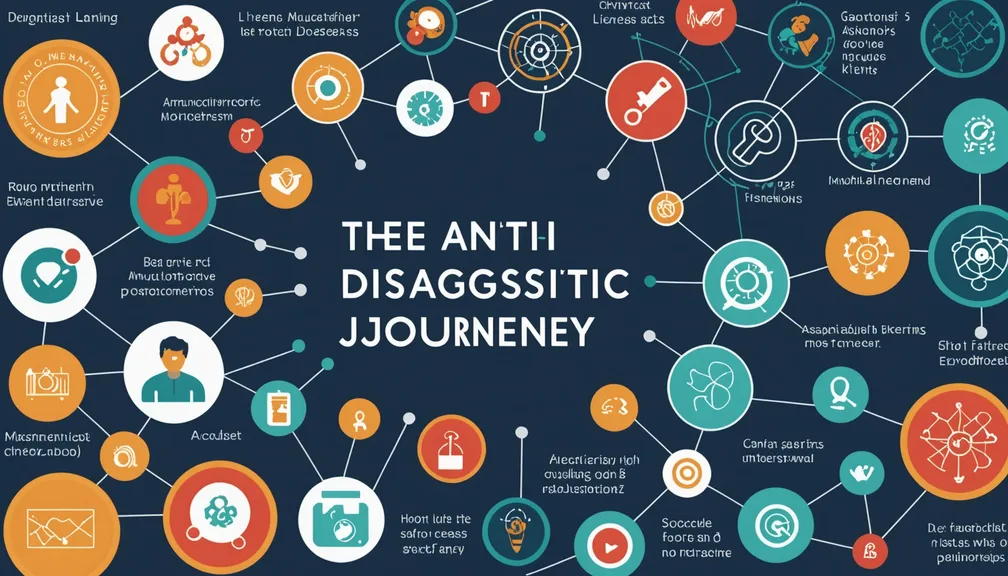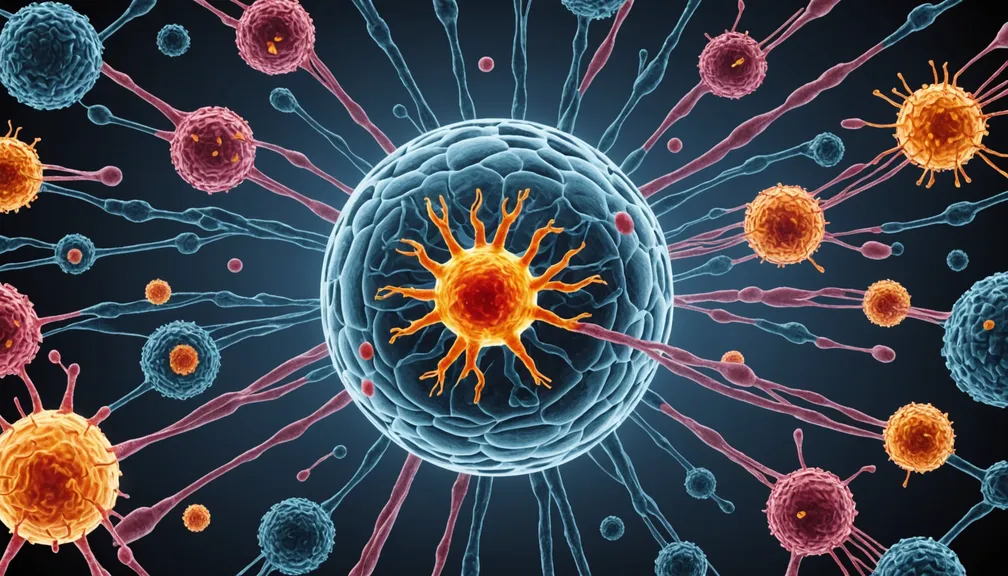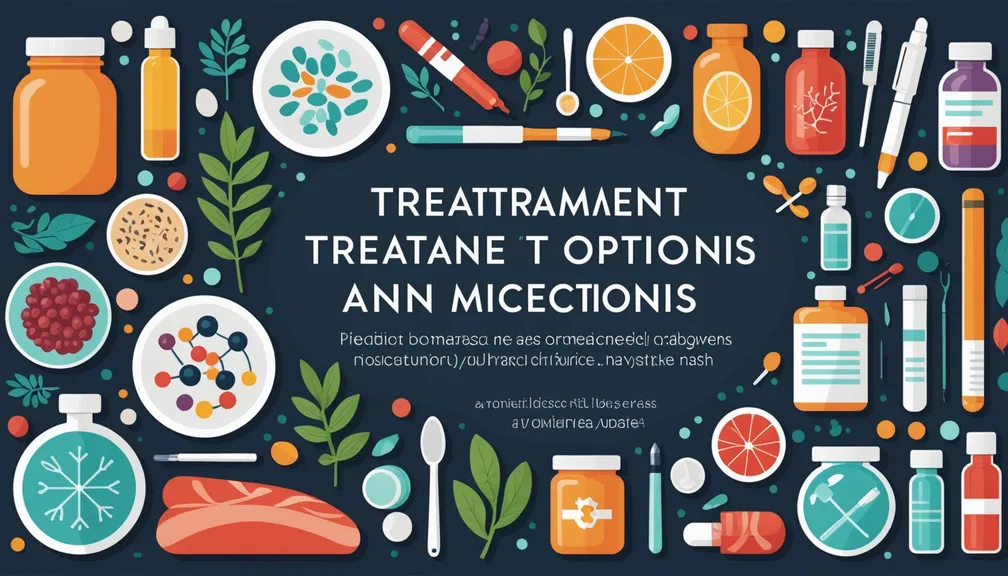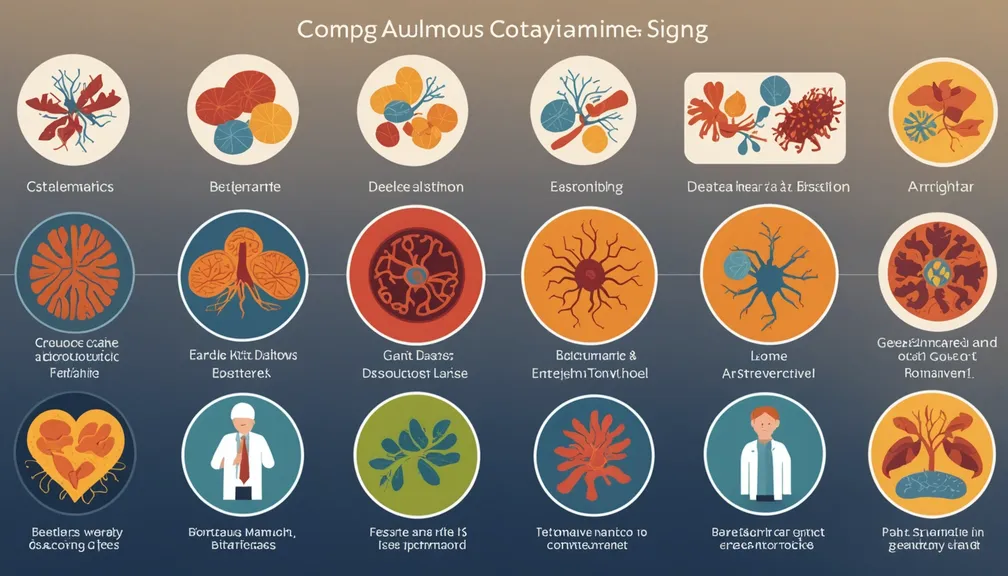Building a Support System: Family, Friends, and Community Resources
Living with an autoimmune rare disease can be challenging, but having a strong support system can make a significant difference. This lesson will guide you on how to build and maintain a supportive network involving family, friends, and community resources to enhance your well-being and manage your condition effectively.
Understanding the Importance of a Support System
A support system provides emotional, physical, and practical assistance, helping you navigate the complexities of living with an autoimmune rare disease. Here’s why it matters:
- Emotional Support: Helps reduce feelings of isolation and anxiety.
- Practical Assistance: Offers help with daily tasks and medical appointments.
- Information and Resources: Provides access to valuable knowledge and community resources.
- Motivation and Encouragement: Keeps you motivated to adhere to treatment plans and maintain a positive outlook.
Engaging Family Members
Family often plays a crucial role in your support system. Here’s how to involve them effectively:
- Open Communication:
- Share your diagnosis and how the disease affects you.
- Discuss your needs and how family members can assist.
- Educate Your Family:
- Provide information about your condition to help them understand your challenges.
- Encourage them to attend medical appointments or support groups with you.
- Set Boundaries:
- Clearly define what kind of support you need.
- Let them know if you need space or specific types of help.
Ways Family Can Support You:
- Emotional Support: Listening, offering comfort, and being there during difficult times.
- Practical Help: Assisting with household chores, transportation to medical appointments, and managing medications.
- Advocacy: Helping you communicate with healthcare providers and managing paperwork.
Involving Friends
Friends can provide a different kind of support that complements what your family offers.
- Stay Connected:
- Regularly reach out to friends through calls, messages, or meet-ups.
- Share your experiences and feelings with trusted friends.
- Seek Understanding Friends:
- Surround yourself with friends who are empathetic and willing to learn about your condition.
- Participate in Activities Together:
- Engage in hobbies or activities that you enjoy and that accommodate your health needs.
Friends’ Ways to Help:
- Social Support: Offering companionship and reducing feelings of loneliness.
- Practical Assistance: Helping with errands, accompanying you to events, or providing a distraction from daily stresses.
- Encouragement: Motivating you to stay positive and adhere to your treatment plan.
Connecting with Community Resources
Community resources can offer additional support beyond what family and friends can provide.
- Support Groups:
- Join local or online support groups for individuals with autoimmune rare diseases.
- Share experiences, gain insights, and build connections with others facing similar challenges.
- Nonprofit Organizations:
- Connect with organizations dedicated to your specific condition for resources, advocacy, and support programs.
- Educational Workshops and Seminars:
- Attend events to learn more about managing your disease, treatment options, and wellness strategies.
Benefits of Community Resources:
- Shared Experiences: Learn from others who understand what you’re going through.
- Access to Information: Stay informed about the latest research, treatments, and support services.
- Enhanced Coping Strategies: Gain new ideas for handling stress, pain, and emotional challenges.
Seeking Professional Help
In addition to personal support, professional help is essential in managing an autoimmune rare disease.
Types of Healthcare Professionals to Consult:
- Rheumatologists: Specialists in autoimmune and inflammatory conditions.
- Immunologists: Experts in the immune system and related disorders.
- Primary Care Physicians: Provide overall health management and coordinate care.
- Physical Therapists: Help maintain mobility and manage pain through exercise and therapy.
- Mental Health Professionals:
- Psychologists or Counselors: Offer therapy to address emotional and psychological challenges.
- Social Workers: Assist with accessing resources, navigating healthcare systems, and providing counseling.
Other Health Professionals:
- Nutritionists/Dietitians: Help develop diet plans that support your health needs.
- Occupational Therapists: Aid in adapting daily activities to accommodate physical limitations.
- Pain Specialists: Provide strategies and treatments to manage chronic pain.
Utilizing Community Resources
Leveraging community resources can enhance your support system and improve your quality of life.
- Local Health Centers:
- Offer access to medical care, counseling, and support services.
- Libraries and Community Centers:
- Provide information, host support groups, and offer educational programs.
- Online Communities:
- Participate in forums, social media groups, and virtual meet-ups for additional support and information.
How to Access Community Resources:
- Research Local Organizations: Look for local nonprofits and support groups related to your condition.
- Ask Your Healthcare Provider: They can recommend resources and support services.
- Explore Online Platforms: Utilize the internet to find online support groups and informational websites.
Tips for Strengthening Your Support System
Building a robust support system takes time and effort. Here are some tips to help you strengthen your network:
- Be Open and Honest:
- Share your needs and feelings with those around you.
- Stay Proactive:
- Regularly reach out to family, friends, and support groups.
- Show Appreciation:
- Acknowledge and thank those who support you.
- Take Care of Yourself:
- Prioritize your well-being to maintain the strength to support others.
- Be Patient:
- Building a support system is a gradual process; give yourself and others time to adjust.
Building a comprehensive support system involving family, friends, and community resources can significantly improve your experience living with an autoimmune rare disease. By fostering strong relationships and utilizing available resources, you can enhance your emotional well-being and effectively manage your condition.






